As Talking Heads -- my first cover subjects -- hauntingly sang
I still remember the moment I became aware of pop music as something I needed to know more about.
I was in fourth grade, at Jimmy Strogoff's birthday party.
Everyone else there started singing "Jeremiah was a bullfrog.
As in many things, I blame my parents. They came of age in that particular time period before rock and roll. They missed Elvis, missed the Beatles. The music they played at home was an odd melange of big band jazz, Broadway showtunes, and what can only be called musical humorists: Tom Lehrer,
(I will always have a soft spot for Sherman for singing the name "Handelman" in his song "Shake Hands with your Uncle Max
And, being the eldest -- just as for a long time I didn't know people got clothes from anywhere besides Sears -- I did not know about top 40 music. But that day I resolved to find out as much as I could. By fifth grade, I remember proudly bragging to a friend that I had bought the new album "Ram
Clearly, I had much to learn.
In sleepaway camp, I befriended a guy named Joe Shalleck. Whereas I lived in suburbia, Joe lived on Central Park West. He went to school with Mel Brooks's son. He knew music, and stereos. (I had bought mine from Lafayette, the poor man's Radio Shack.) I went to my first concerts with Joe: Stevie Wonder at Madison Square Garden, Jethro Tull (!) at Shea Stadium (!!!). I joined the Record Club of America and was able to buy albums (and cassettes!) by mail. There was a radio station that broadcast within the camp, and I deejayed many rest periods. (I remember conducting a poll to find the favorite song among campers, and that I was sad to play what won: "Magic
In high school, I had progressed, if you can call it that, to owning albums by the Eagles, Queen, Emerson Lake and Palmer, but what I remember most is having a friend force me to listen to a song by the original songwriter to convince me that it was better than the top-40 hit that I knew. The song was "Blinded by the Light
That kind of peer pressure/slash/networking exploded during my last two years of high school. Not just Springsteen, but the Clash and Elvis Costello, Steely Dan, Warren Zevon. I subscribed to Rolling Stone and bought records I couldn't hear on the radio, solely based on the writer's enthusiasm: The Ramones' Road to Ruin
I sought out nonconformist, chatty deejays like Vin Scelsa (who still has a weekly show, Idiot's Delight, on WFUV), Meg Griffin (who, like Vin, is alive and spinning on Sirius's The Loft).
And when I got to college, I was exposed to even more. My roommate was deep into David Bowie, Neil Young and jazz; the guy across the hall was a Talking Heads stalker. I joined the college radio station (I remember there was a written exam which included successfully identifying who "The Glimmer Twins
During finals studying period, we broadcast "orgies" of one band or type of music; I did six hours of the Kinks
I also had a 6 a.m. shift the morning after John Lennon was killed, and I remember while all the other stations in town were playing "Give Peace a Chance
I tried to get on the Lampoon, but the first piece I handed in was typed on what I thought was cool stationery from my great uncle's Stadium Motor Lodge in tbe Bronx. The editor, Andy Borowitz, simply wrote "nice stationery" on the piece, and I decided never to submit myself to that kind of withering again. (Of course, many of the folks who stuck it out made millions on "The Simpsons
Instead, I joined the college paper (it was also a competition, but my mentor, Jeffrey Toobin, was supportive), and did my first two celebrity interviews: Brinsley Schwarz
And when I was a senior, Rolling Stone's college journalism award had a "Film Criticism" category. It had been won two years before me by Paul Attanasio (who would go on to write at the Washington Post, and then write Quiz Show
Clearly, I decided, this was a sign. I was destined to write for Rolling Stone. I sent a few ideas to the music editor Jim Henke (now the curator of the Rock and Roll Hall of Fame). He passed, but encouraged me to get in touch when I was in New York.
When I got to New York, however, I couldn't get Henke on the phone. (Trivia nugget: His indefatigable assistant, Roberta Myers, who I recall telling me she earned less in a year than Tom Wolfe was being paid for each chapter of Bonfire of the Vanities which was being serialized in the magazine [left]
So I used every connection I could find and started freelancing for other publications. I temped for an agency that placed people at Conde Nast, and worked in Vanity Fair's ad sales department. The women there made an introduction to the editor of the short pieces, and he made an assignment to me about geisha bars (which I knew about because a friend worked at one).
I worked as an editorial assistant at Esquire with the terrific editors David Hirshey (now at Harper Collins) and Adam Moss (now the edtor of New York), and reported the hell out of some very short items on the movie business. After selling the aforementioned Malick piece to California, Moss assigned me to profile the youngest person ever to create his own sitcom:
Andy Borowitz.
Moss picked me because he knew I had a leg up, knowing many in the world Borowitz had come from. I buried my feelings as deep as I could. But what Moss wanted was the somewhat Machiavellian story of his rise -- e.g., cannily giving a Lampoon award to Bud Yorkin as a stepping stone to Hollywood. (He went right to Yorkin's show "Archie Bunker's Place
Borowitz, who did not remember me from college, proved an affable, if emotionally guarded subject, letting me into the writers' room of the show, which was called "Dreams" and starred John Stamos and Jami Gertz and concerned a rock band in Philadelphia. Every week there would be a new original song, like "The Partridge Family
I remember a chilling moment when the writers were struggling to come up with a joke, and I pitched something. They all looked at me not just like I'd farted, but as if the janitor had acted like he was running the company. It scared me off of writing for TV for 15 years.
Maybe they could have used my help. "Dreams" was cancelled so fast that my piece hadn't even run yet, and Borowitz refused to pose for a photo, so the magazine ended up running a blurry enlargement of his college graduation photo, which Borowitz later joked made him look like "either a sniper victim or a serial killer."
(He did all right after that -- creating the gold mine "Fresh Prince of Bel-Air
It wasn't until after all this, I got my first assignment from Rolling Stone: to fly to a convention of owners of a chain of record stores, where a 25-year-old motivational speaker was going to teach them how to walk across hot coals. It was a gift. Several employees burned their feet and had to be taken to the hospital, and the band playing the convention, Beaver Brown, who would later provide the music for Eddie and the Cruisers
I thought, how is this motivational speaker EVER going to live this down. His career is FINISHED. His name? Tony Robbins.
A few months later, I had another gift: it was the holidays, and few of the Rolling Stone staffers were available, and a cover subject had fallen through.
In a scramble, the magazine reached out to Talking Heads, who amazingly had never been on the cover through their heyday -- and David Byrne, now a movie director, had already been on the cover of Time as "Rock's Renaissance Man." This, it would turn out, would provide a goldmine.
Stay tuned.

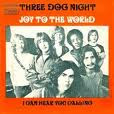

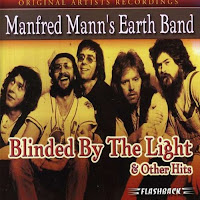

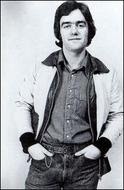


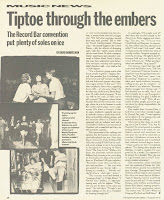
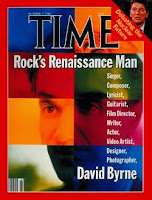




9 comments:
I recently found my Lampoon tryout pieces. The comments were masterpieces of late adolescent nastiness...mostly from people who are now my friends. Also: Vin Scelsa still rules, and/but especially when he was on WNEW-FM. Fact: He came to my NJ high school for mini-course week my senior year and taught a radio course even as a classmate and I taught a course in rock and roll. And let us pause a moment and think good thoughts about Alison Steele, The Night Bird, certainly my model as a DJ.
Did you make the Lampoon?
On a similar note, Allison (like Jimmy Fink!) lived in my hometown and once came for career day at the junior high.
For a week in 1988, I was one of 5 writers hired to put together a script for an educational video with comedy sketches. It was something called SATV, and its purpose was to help high schoolers prep for the SAT's by mixing lessons with comedy.
It was an experience I'll never forget and to this day, there is nothing more horrifying than explaining a joke or a bit, out loud to a group of people, only to be met with silence.
Good piece.
The only comment on my first (and only) Lampoon piece was, and I quote from memory:
"Dear Bill: You're not funny. Your friends, The Editors."
I remember quite clearly thinking: "Oh. Okay. I see. Fuck these assholes," and walking out of the Castle and never coming back. In the years since, I've never had any reason to second-guess my decision except for not earning millions and millions of dollars when I finally came to Hollywood.
The first comment on my first piece was "Blows." Which I took kind of hard until I looked at all the other pieces on the floor next to mine, and the same person had written "Blows" on the back of every one of them.
No....I made it to the last cut, but didn't make the final cut. Ditto what Carl said - few of the comments on anybody's pieces actually said anything. And ditto what Bill said about the second-guessing, and the millions of dollars I don't seem to be making.
Later that year I went to one of the parties...and backed the punk/new wave faction for post-dinner music, vs. the old-school Motown types. Jumping off the mantelpiece and bouncing on the couch was fun, in context, and in a cocktail dress.
I believe at most normal colleges, people who show up for activities are just allowed to participate.
I should add this: I made a really good living for a number of years being professionally funny. Some of the people who were established at the Lampoon when I comped have gone on to do much better than I ever did in the comedy business. But I have to assume -- I mean, it's just sheer numbers -- that the majority of them didn't, and died lonely and poor and miserable and were eaten by cats. So there's that.
I believe this whistling orgy was just a fantasy. After jealous guy, sitting on the dock of the bay, and one or two others we realized we were never going to reach critical mass and gave up. Though I'm sure this will provoke some strong reactions and playlist suggestions from your readers.
But it still would have been longer than the Buddy Bolden orgy ...
Post a Comment